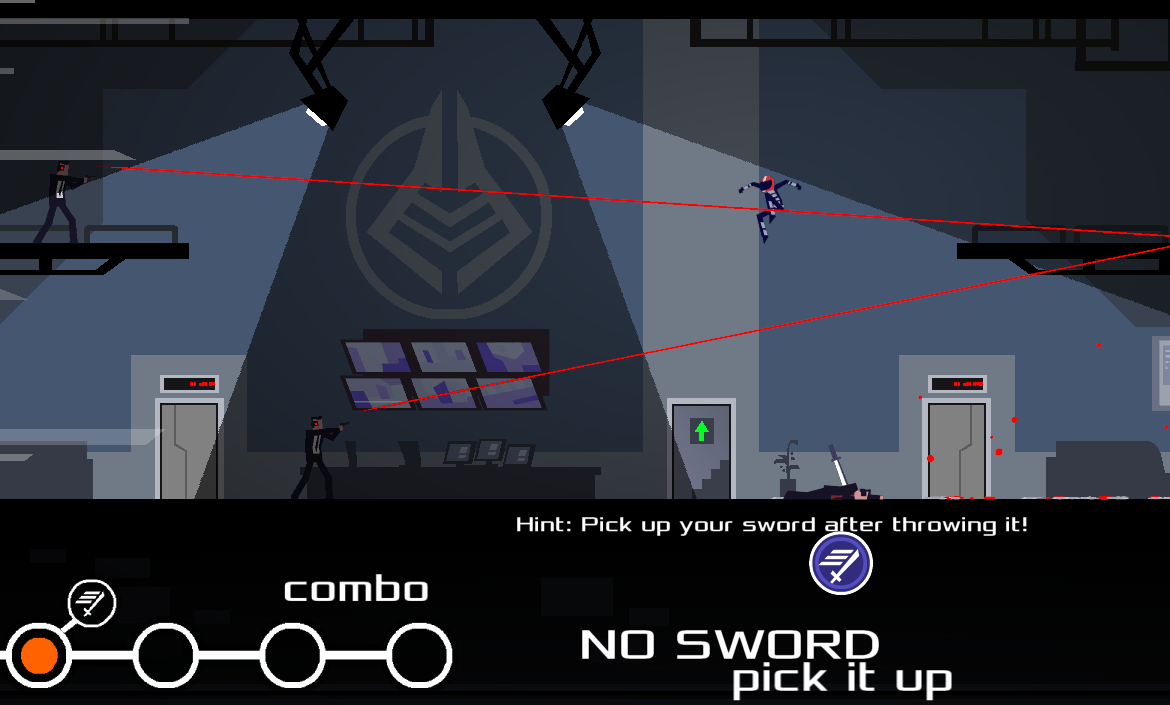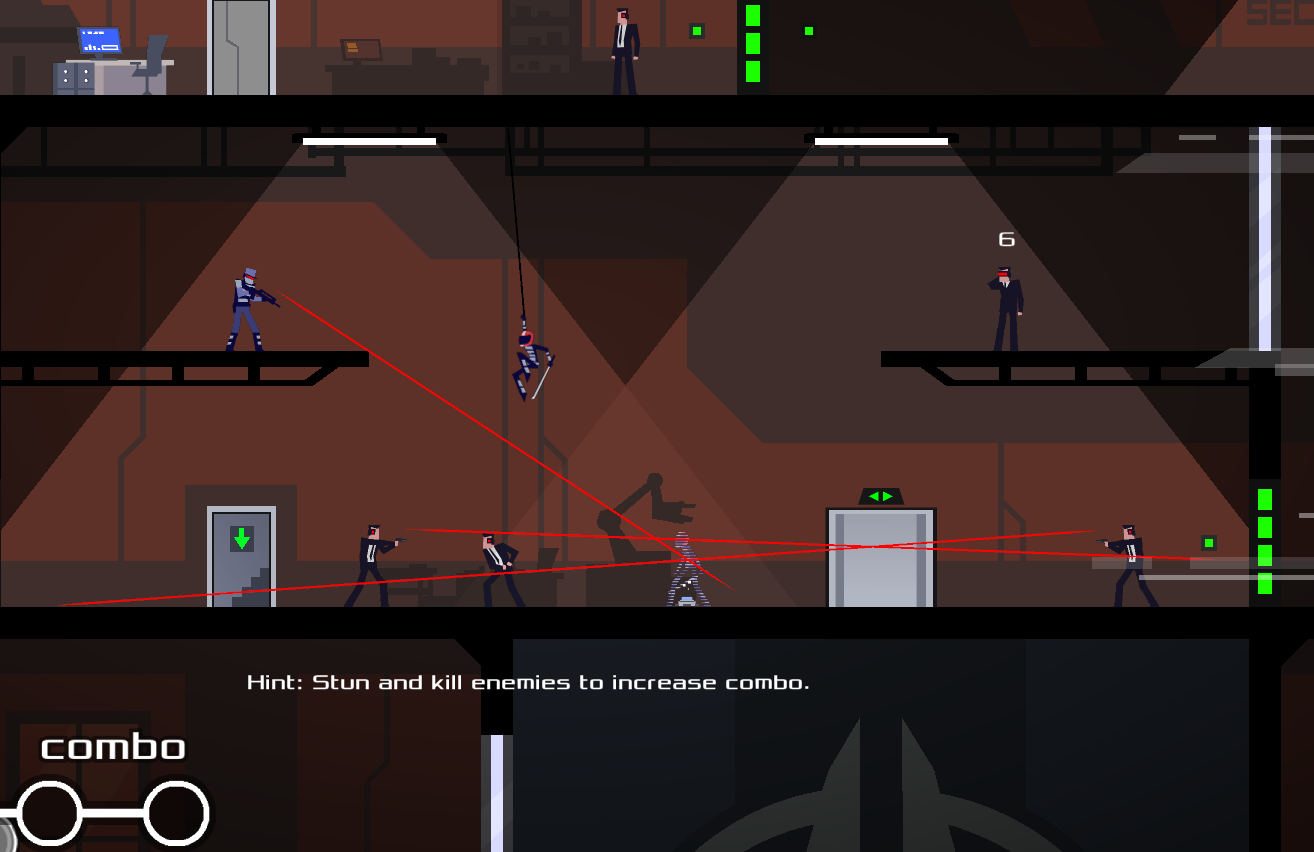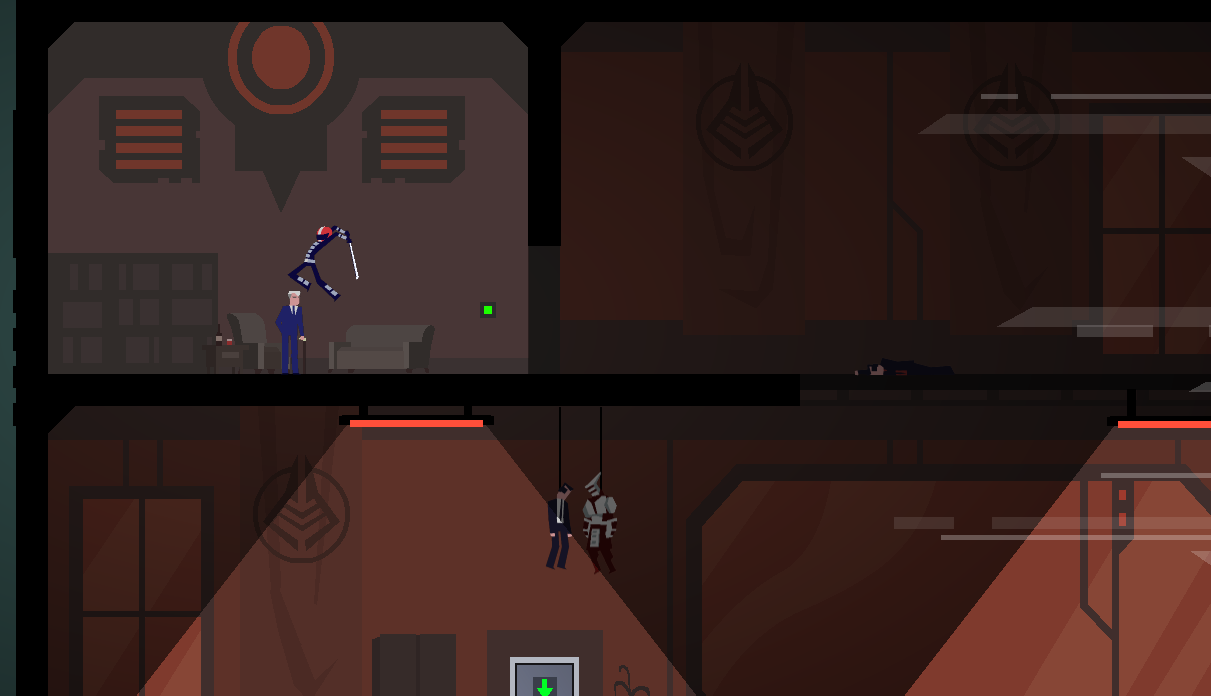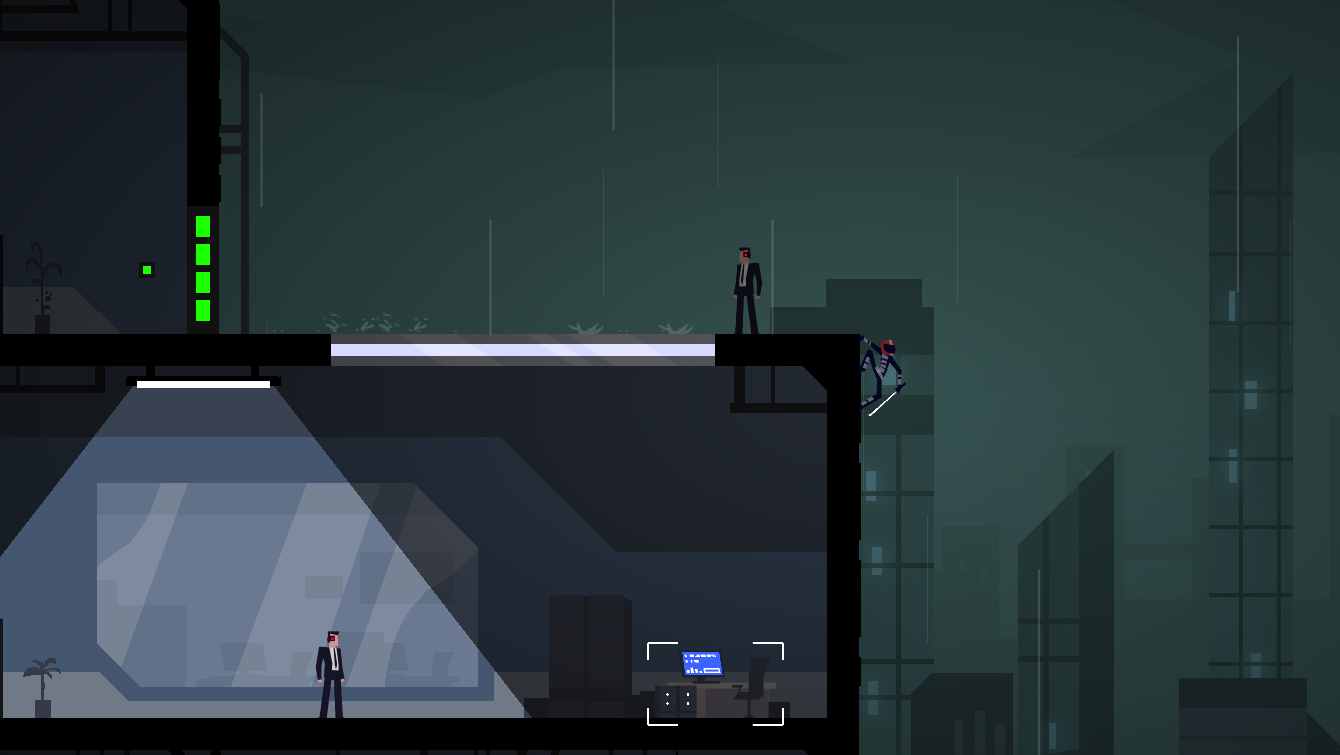Ronin preview: freeform skulking and turn-based stabbing

I'm feeling pretty cool about being a ninja today. Leaping from a roof, I pause in midair to fire a grappling hook into the building I've just jumped from, then I swing in the other direction through a window, knock a guard down, and slice him with my katana before he can regain his footing. Springing to the ceiling, I hand-walk across the room and yank two more guards into the darkness with piano wire nooses, leaving them dangling out of sight.
Later, I encounter another ninja. An armored ninja. An armored, teleporting ninja. It makes me feel a bit less cool about being a ninja, especially when the much cooler ninja kills me for the tenth time.
I've been playing a handful of levels from Ronin, an upcoming 2D platformer with turn-based combat. Comparisons to puzzle-platformer Gunpoint are understandable—Ronin's creator even described it as a Gunpoint ripoff—and there are more than a few similarities. In both games you slink around in a series of multilevel buildings stocked with armed guards and hackable computer terminals. You unlock doors, ride elevators, and climb staircases to get around. You use your mouse to draw parabolic jumps onto enemies and through windows.
The rest is considerably different, with a strong focus on combat, even over stealth. While you can hide in shadows and perform stealth kills, there are large portions of the Ronin levels I played that dispense with lurking and creeping and simply deliver you into a room full of bad guys who absolutely know you're there. Sometimes you have no choice but to simply ride an elevator up into a room where a collection of thugs are waiting, staring right at the door. Ronin doesn't appear to be a game with a 'ghosting' option, at least not in the levels I played.

The thing about the turn-based combat is that it's a little hard to determine what constitutes a turn. Guards will aim at you, their laser sights showing the paths their bullets will take, and then it's your turn to decide what to do. You can try to leap or grapple to safety, or pounce on them and prepare for a killing blow. Thing is, sometimes your leap will constitute a full turn, and sometimes only a half-turn: you may wind up paused in mid-air while the guards readjust their aim. Then again, sometimes you'll be allowed to complete your leap in full. The rules are not entirely clear, but it's still fun, as you leap from floor to ceiling, then back to the floor, then onto your enemy as his bullets pass through the space you occupied a moment ago, a turn too late.

You have a few special moves: sometimes you can fling your sword (though you have to retrieve it), and you can occasionally use a holographic projector to make baddies think you're in a different spot. A single bullet, or the slash of a teleporting robo-ninja's sword, will immediately end your life. Turn-based escape is difficult, sometimes impossible, depending on where you are—fleeing back down a staircase during combat doesn't seem to be allowed—so it's quite challenging in rooms where there are numerous enemies and you can't simply melt back into the shadows. Clearing a room doesn't mean you're done, either, as often times more enemies will appear from one-way doors without warning.
The big combat sections are fun and challenging, and considering how often I died I'm grateful the checkpoint save system is done well. Still, I much prefer the parts of Ronin that let you slither around from shadow to shadow, dangle from ceilings, drop onto baddies, and clear out buildings one thug at a time. It feels a bit more ninja-like than riding an elevator up to a room full of bad guys who are all staring right at the elevator door. I bet even that teleporting ninja would agree with me.
Keep up to date with the most important stories and the best deals, as picked by the PC Gamer team.
The finished game, due to be released later this year, plans to provide 15 missions in which you stalk and assassinate five different figures at the head of a shadowy cabal.


Chris started playing PC games in the 1980s, started writing about them in the early 2000s, and (finally) started getting paid to write about them in the late 2000s. Following a few years as a regular freelancer, PC Gamer hired him in 2014, probably so he'd stop emailing them asking for more work. Chris has a love-hate relationship with survival games and an unhealthy fascination with the inner lives of NPCs. He's also a fan of offbeat simulation games, mods, and ignoring storylines in RPGs so he can make up his own.

